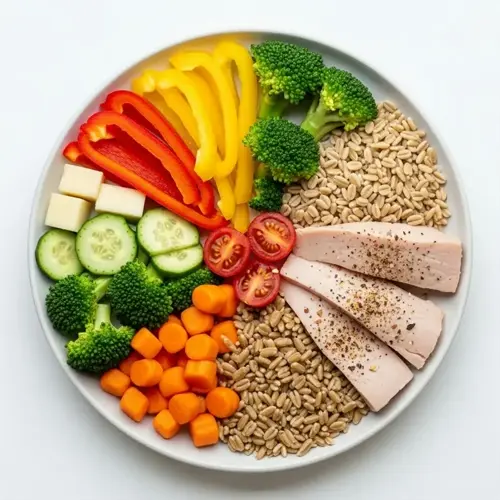Can potassium supplements replace dietary sources?

Written by
Natalie Hamilton
Reviewed by
Prof. Benjamin Murphy, Ph.D.Although potassium nutritional supplements seem convenient, they come with significant risks. They deliver concentrated medication doses to the body, which can tend to overwhelm the body. The nutrients in foods are all balanced, with optimal cofactors that enhance absorption rates. It is for this reason that I always recommend the food sources first for safe potassium intake.
Hyperkalemia Danger
- Supplements can cause lethal potassium buildup in blood
- Kidney patients face cardiac arrest risk
- Symptoms like irregular heartbeat may appear suddenly
Natural Absorption Advantage
- Foods contain magnesium and fiber aiding utilization
- Bananas offer vitamin C enhancing potassium uptake
- Plant compounds increase mineral bioavailability
Medication Interactions
- ACE inhibitors reduce potassium excretion
- Diuretics create unpredictable mineral fluctuations
- Supplements amplify these dangerous interactions
There are only a few cases where supplementation becomes necessary. Only individuals whose serum tests indicate an absolute need for supplementation should be given supplements temporarily. There are certain diseases, such as Crohn's disease, where food absorption is impaired; in these cases, a supplement to address the deficiency becomes necessary. The dosage limit should be the smallest possible, with medical observation.
Whole foods naturally include safeguards. The bound fiber delays the release of potassium and helps protect against large shifts in potassium levels. The natural water content is also a diluting factor for mineral concentration. Phytonutrients help to facilitate uptake within cells. As a result of all these factors, it is challenging to exceed a safe dose using food sources alone.
Be careful when supplementing your potassium: get weekly blood tests in the beginning. Be aware of any yellow flags you may show such as muscle weakness. Keep emergency numbers accessible. I cared for a patient whose potassium levels went from normal range to 3-times (300%) greater only a few days from the time she started taking potassium supplements.
When planning meals, consider high-potassium foods. For every meal, aim for three servings of fruit or vegetables. Between meals, snack on nuts and seeds. These methods boost levels reliably without the hazards of pills. The absorption of nutrients in a more pure form by the body is best accomplished through whole food matrices.
Read the full article: Sodium Potassium Balance: Essential Health Guide

